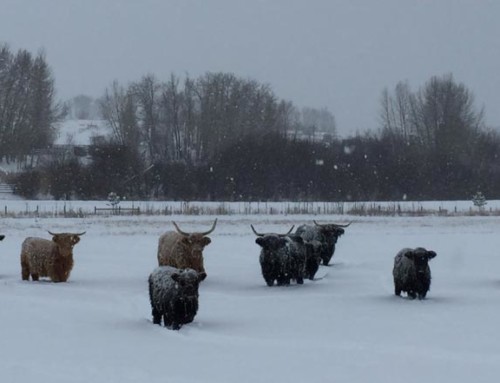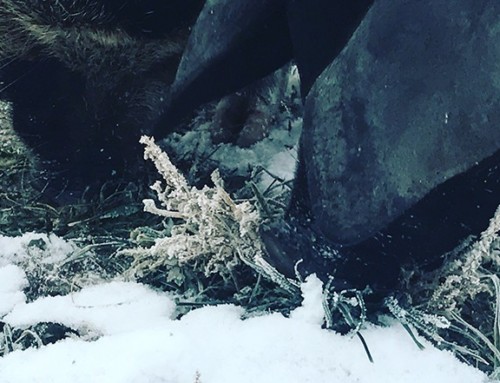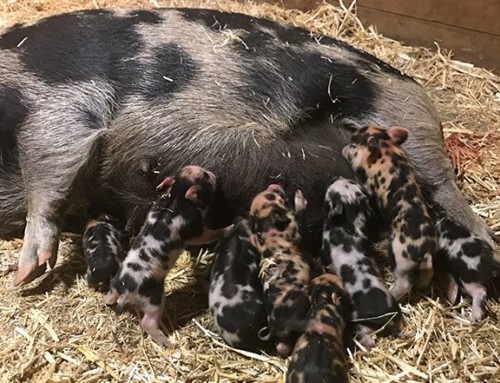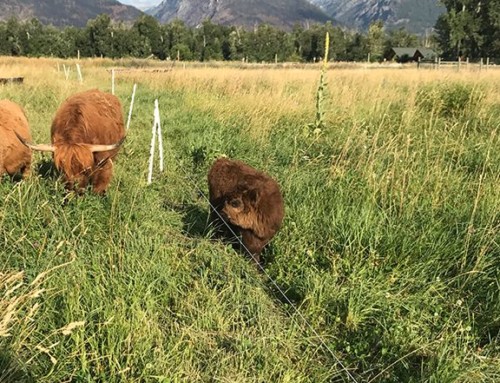As happens sometimes on the farm, I found myself working on a number of solo projects last week–burying irrigation lines, planting early seed starts, and moving hay…always more hay. I have come to find, somewhat to my surprise, that I relish such projects for their simplicity, regularity, and operational patterns. In Buddhism there are people who practice walking meditation, and I have inadvertently found myself doing something similar. Walking meditation, as I understand it, is a practice of calming the mind by focusing on simple movements of the body–measured footfalls and steady breathing–during the activity of walking. I have begun to find a similar kind of peace in the steady pace of the farm chores where even the most mundane tasks have become opportunities for peaceful reflection and quiet action.
Much of what made me successful in academic/corporate settings was my ability to juggle tasks, divide my focus, and respond to multiple requests at the same time. While I was, on the whole, able to keep up with these demands, they sapped all my physical and emotional attention and energy. Yes, I was getting things done, but I wasn’t happy. I wasn’t at peace with myself.
Perhaps not surprisingly, after starting at the farm in early December, I struggled with its unique pace and my singular focal points throughout each day. I discovered quickly that if left alone for too long, my mind would race, desperately at times, to find things to agonize over in the same way a tongue incessantly worries at a sore tooth. My mind was constantly looking for my previously accustomed frantic stimulation, and, not finding it, would turn inward on itself. In what I can only describe as an autoimmune response, my mind would engage in a sort of feedback loop that left me struggling for clarity of purpose and battling a restless heart.
Before coming to the farm I had precious few opportunities that allowed for the intersection of time, activity, and mindset that make for the “working meditation” that farm chores provide. I was always rushing from one thing to the next. Economy of motion was meant to save time, to squeeze a few more minutes out of the day. Such economy was not, however, in service of a peaceful mind or a joyful heart; it was to hurry up to the next task, request, or demand. And yet, I am not working less on the farm. My pace, certainly less frenetic than it was as a grad student or professor, is now approaching something that is steady and smooth, a rhythm. I understand now that I was at the mercy of the expectations in previous jobs and iterations of my life.
Today I am learning to enjoy giving in to my farm chores, embracing them, and letting them guide not just my mind but also my sense of self-accomplishment. I’m enjoying the opportunity, too, of working to weave my newfound farm mentality into my life at home, and finding the joy and calm in simple chores such as doing the dishes and picking up the yard after the dogs. I’m learning that these chores are only burdens if I say they are, if I ascribe them that weight. But, equally, if I approach them with an open heart, then they too are opportunities to be still and to grow.






